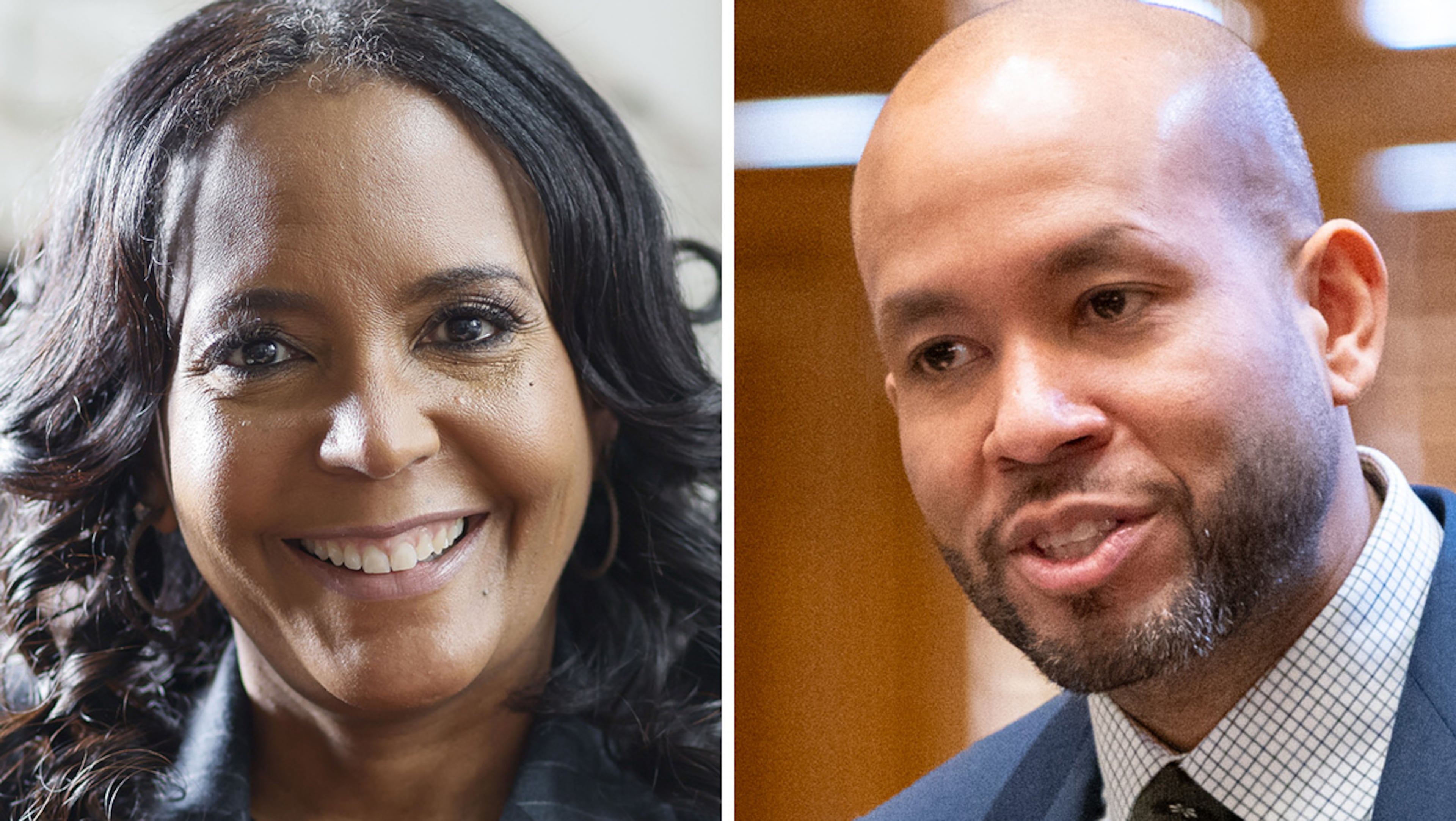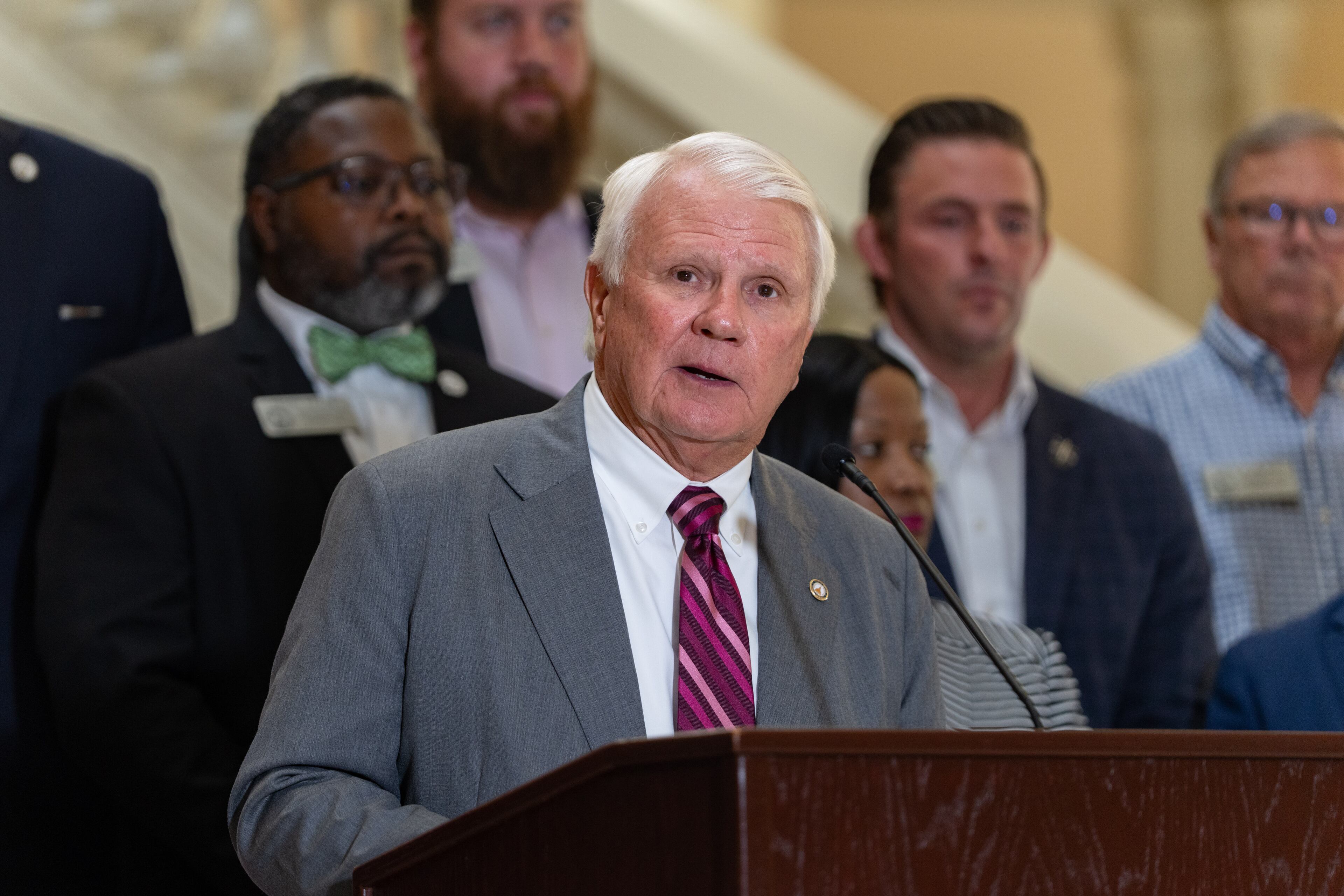Democrats usually avoid tax cuts. In this governor’s race, they’re all in.

In the opening phase of the governor’s race, rivals from both parties are converging on one theme: tax cuts.
Long a Republican rallying cry, the push for steep reductions is now being echoed by Democrats with their own proposals.
Former Atlanta Mayor Keisha Lance Bottoms has vowed to end income taxes for public schoolteachers. State Sen. Jason Esteves is exploring ways to bring “much-needed tax relief to working families.”
And former DeKalb County chief executive Michael Thurmond is ripping a page from President Donald Trump’s playbook by pushing to eliminate state income taxes on tips and overtime pay.
“This race will be about the economy. That’s the No. 1 issue,” he said. “And frankly, that’s what we Democrats missed last November.”
After another election dominated by the economy and inflation, Georgia Democrats are embracing tax-cut proposals to appeal to independents and swing voters who could decide next year’s race.

Their calls don’t go as far as GOP-led efforts for far steeper tax cuts. Lt. Gov. Burt Jones has made eliminating the state income tax — and the roughly $19 billion in annual revenue it brings to state coffers — a central theme of his campaign.
His top Republican rival, Attorney General Chris Carr, has vowed to ensure Georgia has the lowest tax burden of any Southeastern state, promising to target taxes, fees and regulations he says are burdening businesses.
Still, the Democratic shift is striking. In recent campaigns, party leaders largely avoided broad tax-cut promises and instead leaned on state surpluses and vows to tighten other spending to pay for priorities.
In 2014, Jason Carter floated closing tax loopholes, reducing waste and collecting unpaid taxes to bolster education funding. Stacey Abrams opposed raising taxes in 2018 and 2022 but stopped short of major cuts, focusing instead on channeling budget surpluses into health care, housing and teacher pay hikes.

Now, Democrats are going further. State Rep. Derrick Jackson, another candidate for governor, outlined a plan to exempt teachers, military veterans, nurses and Georgians over 65 from paying state income taxes as a step toward repealing the levy altogether.
And Thurmond said it would be political malpractice to ignore the “universal lesson” that cost Democrats in the state last November, when the party focused more on threats to democracy rather than kitchen-table issues.
“We have to listen to the voters, and what they’re saying is they need help with the cost of living,” he said of his proposal, which echoes a Trump-backed law offering workers up to a $25,000 tax deduction on tipped income.
“You have to demonstrate that you get it. People are out there struggling. They need help,” Thurmond said. “And the one thing the government can do is let them keep more of the money they earned.”
‘The right way’
Any cuts to state income taxes would rip a hole in Georgia’s $37.7 billion budget that would need to be offset with new revenue or spending reductions. The individual income tax makes up 42% of state revenue, while corporate income taxes account for about 9%.
Alex Zhang, a tax law and policy expert at Emory University, said it would be “close to impossible” to eliminate Georgia’s income tax without dramatically reducing government services or raising sales or property taxes.
The smaller-scale efforts embraced by Democrats would require less seismic changes. A Georgia State University analysis found eliminating state taxes on tips would cost about $400 million over five years. There’s no estimate yet on the overtime piece.

Danny Kanso, senior fiscal analyst for the liberal-leaning Georgia Budget and Policy Institute, criticized proposals “picking winners and losers” by carving out groups like teachers for targeted breaks. A simpler approach, he said, would be for the state to raise teacher salaries instead. He pointed to child care tax credits approved this year as an example of a more targeted, effective strategy.
But Kanso was even more critical of GOP plans to phase out the income tax altogether, which he said would primarily benefit the wealthy.
Such critiques haven’t dissuaded Jones, who convened a hearing last month to outline his push to gradually slash the rate. Georgia’s income tax has already fallen from 5.75% to 5.19% and is scheduled to drop to 4.99% in 2027. In addition, Gov. Brian Kemp approved a series of tax refunds in recent years.
House Republicans, who get the first crack at tax legislation, have a different emphasis. Speaker Jon Burns convened more than 150 lawmakers and advocates last week on the coast to preview next year’s session. And one of his priorities: cutting property taxes for landowners and homeowners.

Kyle Wingfield, president of the conservative-leaning Georgia Public Policy Foundation, said it’s no accident that leaders of both parties are floating tax ideas now. After building up billions in reserves in recent years, lawmakers have a unique opportunity to offer tax relief.
Wingfield favors gradually reducing income tax rates. But he doubts Georgia can eliminate it entirely. And, like Kanso, he is skeptical of the Democratic proposals that target specific groups risk picking favorites.
Still, he applauded both parties for opening the debate.
“I think it’s great that we’re having this conversation,” he said. “As we find the right way to do it, it’s going to be great for the people of this state.”
This story has been updated to correct the decline in Georgia’s income tax rate in recent years. It has fallen from 5.75% to 5.19%.




